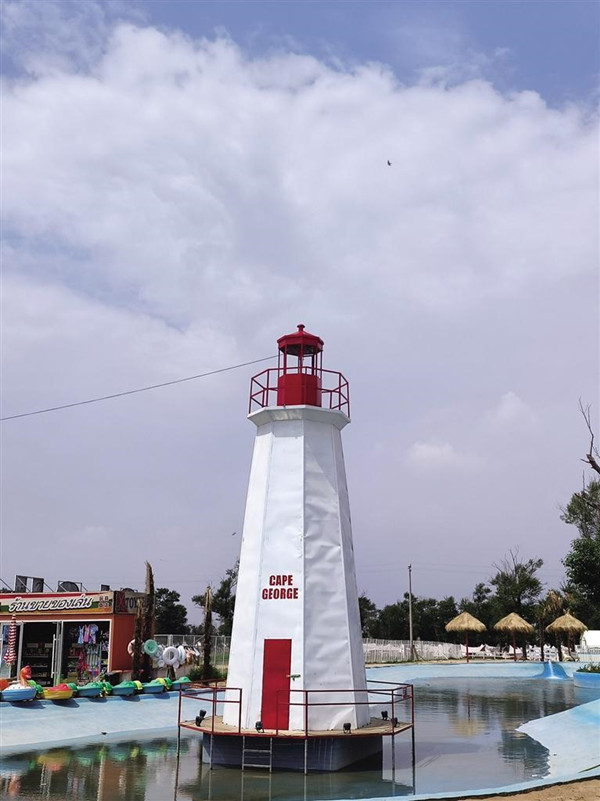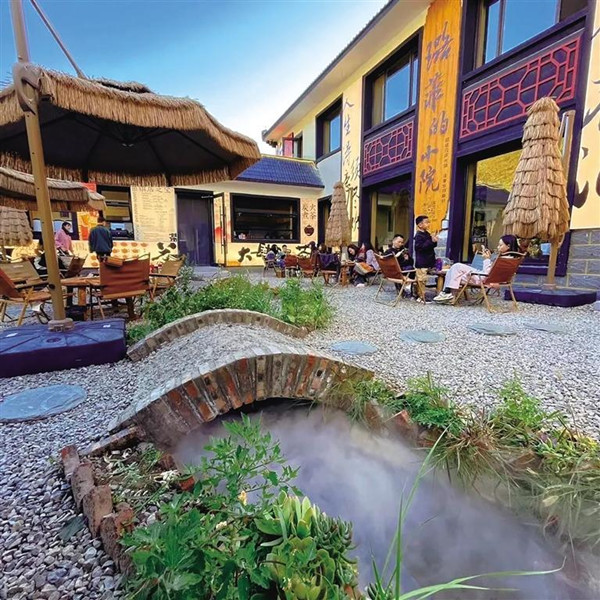Glorius ecotourism campsites in Hohhot city boost economy

The Yunduan Xiaozhen Campsite in Hohhot. [Photo/Hohhot news network]
The Yunduan Xiaozhen Campsite in Hohhot – capital city of North China's Inner Mongolia autonomous region – is currently adorned with tents spread across lush green lawns, shimmering with droplets of rainwater.
As night falls, visitors enjoy stargazing, open-air movies, barbecues and quaff beer, in an atmosphere of total tranquility.
"This campsite has an amazing environment, with clear blue skies, white clouds and green grass. It's pure delight!" exclaimed tourist Yu Hong, smiling.
"Lying on a long chair and staring at the sky is an absolute luxury," Yu added.

An idyllic rural cottage offers guests tranquility in Shuimo village. [Photo/Hohhot news network]
The ecological camping site, which owes its popularity to the beautiful backdrop of Daqing Mountain, is not the only of its kind to flourish there. The region now hosts some 10 leisure camping sites situated along the slopes of the mountain.
The transformation of Daqing Mountain has not gone unnoticed, particularly by local villagers who have benefited greatly. With the ecological restoration of the mountain over the years, their livelihoods have improved markedly.
Since 2012, Hohhot has initiated a comprehensive ecological protection and management project, striving to create an "ecological green belt" on Daqing Mountain.
So far, 7,200 mu (480 hectares) of barren mountains have been reafforested and a total area of 118 square kilometers has been dedicated to conservation.
The most significant change brought about is the pleasant climate. Along the slopes of the mountain, the average humidity during summer is now 67 percent. Records show that until the end of September this year, Hohhot experienced a total of 213 days of good air quality.







